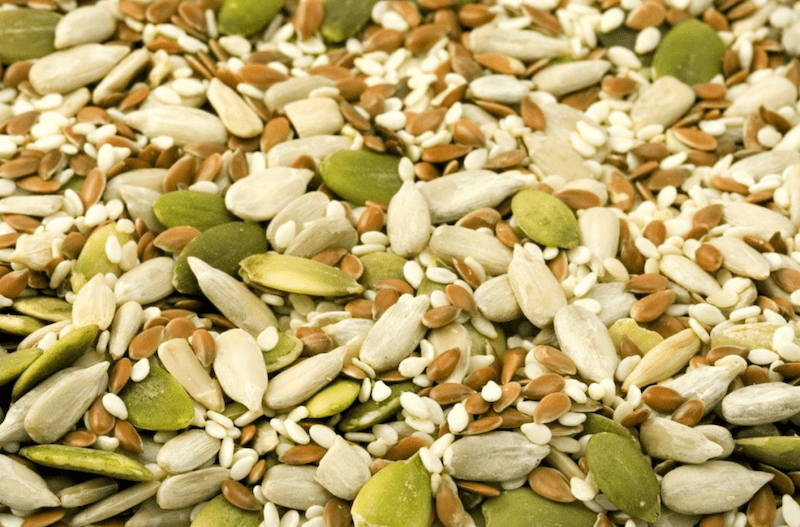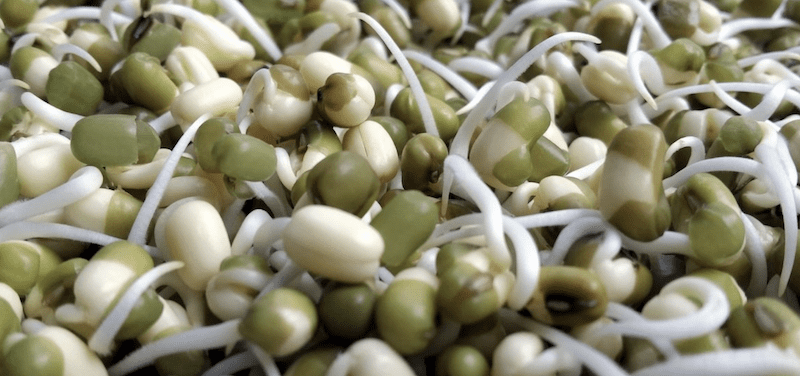El poder nutritivo de las semillas comestibles
Las semillas son las multivitaminas de la naturaleza. Están repletas de nutrientes y son una fuente importante de vitaminas, minerales y antioxidantes que pueden mejorar la salud y el bienestar general. Sin embargo, a menudo se pasa por alto el poder nutritivo de las semillas comestibles. Esta guía se centra en las semillas comestibles, destacando su papel como verdaderas fuentes de nutrición.
For thousands of years, humans have been consuming seeds for their rich nutritional content. From chia and flax seeds to pumpkin and sesame seeds, these tiny nutritional powerhouses están muy presentes en la dieta de diversas culturas de todo el mundo.
Ya se consuman crudas, germinadas o incorporadas a las comidas, las semillas aportan un gran aporte nutricional a la dieta. A pesar de su pequeño tamaño, las semillas son una potente fuente de energía. Son ricas en fibra dietética, grasas saludables, proteínas y multitud de vitaminas y minerales esenciales. Cada tipo de semilla tiene su propio perfil nutricional, que ofrece diversos beneficios para la salud. Como parte de una dieta equilibrada, las semillas pueden ayudar a reforzar la inmunidad, mejorar la salud digestiva y prevenir el desarrollo de enfermedades crónicas.
Unconventional Hemp, Quinoa, Pomegranate Seed
Beyond commonly consumed seeds like chia, flax, and pumpkin, there are several lesser-known, unconventional edible seeds that offer significant nutritional benefits. Hemp seeds, quinoa, and pomegranate seeds are some of these underrated gems.
Hemp seeds are a complete protein source, meaning they provide all nine essential amino acids that the body cannot produce on its own. They are also rich in omega-3 and omega-6 fatty acids and offer a good supply of magnesium, phosphorus, and iron.
Quinoa, often mistaken for a grain, is actually a seed. It is a high-quality protein source and is rich in fiber, magnesium, B vitamins, iron, and various antioxidants. Pomegranate seeds are packed with fiber, vitamin C, vitamin K, and several other essential nutrients. They also contain a unique antioxidant called punicalagin, which has potent anti-inflammatory properties.
Raw vs Sprouted Seeds: What’s the Difference?
Seeds can be consumed in various forms – raw, roasted, sprouted, or ground into flour. Among these, raw and sprouted seeds are the most common types of seeds consumed today. But what's the difference between the two?
Raw seeds are seeds in their natural, unprocessed form. They retain all their original nutrients and are a healthy addition to your diet. However, raw seeds contain natural chemicals called enzyme inhibitors, which can make it harder for your body to absorb all the nutrients in the seeds. This is because they are meant to pass through an animal’s gut and germinate after defecation.
Sprouted seeds, on the other hand, are seeds that have been soaked in water until they begin to germinate. This process breaks down the enzyme inhibitors, making the nutrients in the seeds more bioavailable. Additionally, sprouting increases the seeds' vitamin and mineral content, making them even more nutritious.
The Health Benefits of Sprouting Seeds
Sprouting seeds offer several health benefits. As mentioned, sprouting makes the nutrients in seeds more bioavailable, allowing your body to absorb more vitamins, minerals, and antioxidants from the seeds. This can lead to improved overall health and well-being. Also, sprouting seeds can aid digestion. The process of sprouting breaks down the seeds' starches into simpler sugars, making them easier to digest. Furthermore, sprouted seeds are a good source of dietary fiber, which aids in digestion and promotes a healthy gut.
Lastly, sprouting seeds can enhance their antioxidant content. Antioxidants are substances that protect your cells from damage caused by free radicals, unstable molecules that can lead to chronic diseases. By increasing the antioxidant content, sprouted seeds can help reduce the risk of various diseases, including heart disease and cancer.
How to Sprout Seeds at Home
Sprouting seeds at home is a simple process that requires just a few basic items: seeds, a glass jar, a piece of cheesecloth or a sprouting lid, and water. Here's a step-by-step guide on how to sprout seeds at home.
---Rinse your seeds under running water to remove any dust or dirt
---Place the seeds in a glass jar and cover them with water. Let them soak overnight
---The next day, drain the water from the jar using the cheesecloth or sprouting lid. Rinse the seeds with fresh water and drain again
---Place the jar in a location out of direct sunlight where it can drain and air can circulate
---Rinse and drain the seeds twice a day until they start to sprout. Depending on the type of seed, this can take anywhere from 2 to 7 days
---Once the seeds have sprouted, rinse them one last time and drain thoroughly. Store the sprouted seeds in the refrigerator and consume within a week
Best Edible Seeds for Sprouting: Alfalfa, Broccoli, Clover, Radish, Mung
While most seeds can be sprouted, certain seeds are particularly suited for sprouting due to their nutritional profile and their quickness to sprout. Alfalfa seeds, broccoli seeds, clover seeds, radish seeds, and mung seeds are among the best edible seeds for sprouting.
Alfalfa seeds are one of the most common types of seeds sprouted at home. They are rich in vitamins A, C, and K, and several minerals, including calcium, iron, and magnesium. Broccoli seeds, when sprouted, produce sprouts that are exceptionally high in antioxidants and are believed to have anti-cancer properties.
Clover seeds produce mild, crisp sprouts that are a good source of vitamins A, B, C, and E, as well as several minerals. Radish seeds yield sprouts with a spicy flavor and are rich in vitamins A, B, C, E, and K, as well as calcium, iron, and magnesium. Mung seeds, commonly sprouted to produce bean sprouts, are a good source of vitamins A, B, C, and E, as well as calcium, iron, and potassium.
Incorporating Edible Seeds in Your Diet
Incorporating edible seeds into your diet is relatively straightforward. They can be sprinkled on salads, mixed into yogurt or oatmeal, blended into smoothies, or used as a topping for baked goods. Ground seeds can be used as a flour substitute in gluten-free baking, while sprouted seeds can be added to sandwiches, salads, or stir-fries.
Another delicious way to incorporate seeds into your diet is by making seed butter. To make this butter simply grind your favorite seeds in a food processor until they form a smooth paste. This can be spread on toast, used as a dip for fruits and vegetables, or added to smoothies for an extra protein boost.
Seeds can also be used as a crunchy garnish for various dishes. Sprinkle them over soups, stews, or roasted vegetables for added texture and nutrition. Regardless of how you choose to incorporate them, seeds are a versatile and nutritious addition to any diet.




.png)
.png)
.png)

.png)